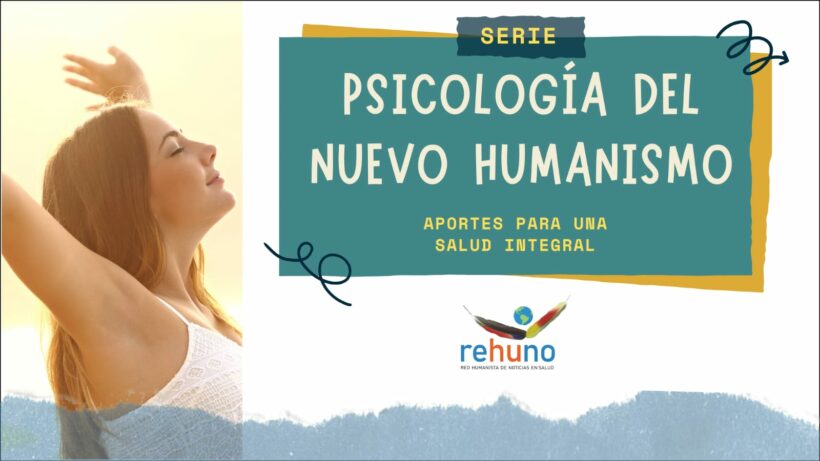From the Humanist Health News Network REHUNO Health we set up a place of exchange where we find a new look on daily life based on an experiential and existential psychology (the Psychology of New Humanism), and which gives some concrete proposals of personal work to reach a full sense of our existence and a life free of unnecessary suffering.
It is not, therefore, a therapeutic psychology, nor does it deal with any pathology, but is aimed at anyone who wants to understand themselves and have the tools, if they so wish, to initiate a positive change in their lives. Psychological wellbeing is undoubtedly one of the foundations of integral health, which is why it is an aspect that needs to be addressed. We invite you to put these proposals into practice and also to contact us and tell us about your experience. Write to us!
By Jordi Jiménez
What do we mean and why is it important to give and receive? We talk about “giving” when we carry out an action that comes from us and reaches other people with the aim of building or offering something positive to those people, whether they are close or unknown. Also, when we carry out actions that contribute to improving the lives of human groups, even if we do not have any of those people present at the moment of carrying out that action (social actions, for example).
In other words, the arrow goes out from us to the world, to others. For example, if we help a friend in difficulty, or support someone in their projects, or participate in a collective that seeks to achieve social improvements. There are also many works related to the capacity to give: a doctor who gets involved with his patients, a teacher who gives his best for his students, a fireman who puts out fires or someone who organises and coordinates a solidarity project.
Letting go” radiates and increases energy.
In all these cases a kind of activity is set in motion that produces registers of letting go, as if something comes out of us and radiates around us, reaching out to others. If we pay attention to the sensations that are produced, we will surely find feelings of openness or spaciousness. This letting go and radiating energy outwards, contrary to what we may believe, produces an increase in bodily energy and a balanced circulation of energy, as it registers as something coherent and unitive.

However, if we look at certain work activities in which one “gives” one’s best to others, there is sometimes a sense of disproportion in the energy that we pour out to others. It is as if we “empty ourselves” in others and become exhausted and exhausted. But we should not confuse these energetic excesses with the phenomenon of giving itself. When you talk to people who do this kind of work and ask them about their experience, they say that it is the best thing they have ever done and that they would not change it for anything, despite the exhaustion it produces. Often this energy drain is actually caused by work pressures, precarious work conditions, or a total forgetfulness of oneself. Giving to others is such that one loses focus on oneself and, without realising it, one empties oneself energetically.
“Giving to others” produces wellbeing and balance.
But apart from work-related issues, if we try to remember our actions driven by giving to others, we will see that in the short and long term we produce registers of balance, coherence and energetic unity. Conversely, when we speak of “receiving” we are referring to all that we do thinking only of what it will bring to ourselves. Let’s do the same as before: let’s see what kind of sensations are produced, what kind of emotions and registers appear when we act in this way. In this case, the arrow goes out of us and comes back to us, so the psychophysical energy moves in a closed circle. It is like if we never open the windows in a house. It would end up smelling… closed. From the energetic point of view, the attitude of receiving is similar. Everything goes in, nothing comes out, because even what I do towards others is thought from what it will bring back to me, it is thought from what will come back to me, thus “intoxicating” everything from thoughts to muscles.
A life based on “getting” is a life full of tensions and discomfort.
Don’t confuse this centripetal, inward-looking attitude with what I do to meet whatever needs I may have. On a daily basis, I need to carry out a series of activities such as eating, resting, socialising or even simple leisure activities, which of course end up with me, but which are absolutely necessary for my subsistence and my physical and psychological balance. There is no problem in covering one’s own needs. On the contrary, if we do not take care of what we need, we empty ourselves energetically, as we have seen before in the case of some work. When we speak of a centripetal attitude, we refer to that inner attitude in which one believes that the world is there for one to devour according to one’s special cravings, as if one were the centre of the world, a kind of black hole that sucks in everything it finds around it.
What do we mean by all this? That this selfish attitude is not a sin, but a huge miscalculation, because we have naively believed that receiving is more than giving. And if we look more carefully, we will see that a life based on receiving is a life full of tensions of grasping, anxieties of possessing and fears of losing what is possessed, a life of rarefied personal relationships and petty interests. All these are but symptoms of a self-enclosed energy, which remains in and for oneself, in a kind of individualistic loneliness that “contaminates” everything it touches.
Therefore, if we aspire to a life free of contradictions, awake and meaningful, we must have this important aspect in mind: the attitude of giving frees us, makes us stronger, more coherent and, in short, happier.










